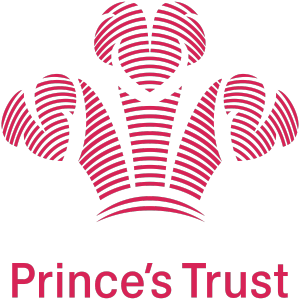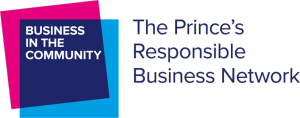
Five things millennials look for in a job
Over the next 10 years millennials will be the predominant demographic in the workplace. They have different expectations for work but does your business know how to attract them? We’ll share our top tips with you…
Who are millennials?
So, who are millennials? In essence, it is someone who is born between 1985 to 2000 and so they’re 16-30 years-old. They’ve grown up in an explosive period of technology growth, come accustomed to multitasking and peer reviews dictate their actions.
The lifestyle of this demographic is ever changing unlike previous demographics who favoured stability and steadfast loyalty. Millennials are more willing to change, adapt and reinvent themselves.
Millennials are also ambitious. As technology has created a 24/7 information hungry culture, young people are not afraid of the lines of work and life blurring. So for instance, working into the early hours is perfectly normal but they would probably expect the employer to offer the same flexibility in return. The 9 to 5 days definitely don’t apply for this generation.
So, what are young people looking for when they apply for jobs? We’ve come up with five things that you can address to make your business appealing to young people.
- Simple application process
There are lots of ways you can recruit including application forms, phone interviews, assessment days and psychometric tests. For the average graduate, they go through these types of processes 22 times over a 5 month period before getting a job (Source: The Chemistry Group).
The mental health issues this could potentially have on a young person are surely going to create a problem for our society’s future? We have had feedback from students who have had experience going through complex application processes. They often did not receive any feedback and as a result suffered a loss of confidence and dampened their self esteem.
Accountancy firm, KPMG, recently announced they were shortening their recruitment process because young applicants were frustrated by the length of the process.
26-year-old Jack had been applying for lots of different roles when he left university. He came across a graduate programme set-up by Access Generation’s founder, Chris Tarry.
Jack said: “Some application forms feel like a job in itself but when I came across the graduate application form it was like a breath of fresh air. It was so straight forward and the company just wanted to know me a little better before the phone interview stage.”
- Clear progression opportunities
As we mentioned previously, millennials are an ambitious generation. They want to know what the current job opportunity will entail but also where it might lead to in the future. They want to see that the employer is thinking about their future as well as today’s business needs.
Catherine Maskell, head of global marketing at REED Recruitment agency, was recently quoted in the Guardian saying: “Young workers are looking for prospective employers who can show them clearly-defined career paths and be upfront about potential earnings, and this transparent approach to recruitment can help create a very happy and fulfilled workforce.”
As young people are more willing to change and move around an employer needs to consider if they will support their career aspirations even if it leads outside the business in the long run. Kathy Allison is the head of HR at FitFlop, a healthy footwear company. The trick, she says, to recruit and retain top talent is by talking with them about their career aspirations, even if this isn’t with you.
- Positive company vision and values
Young people want their work to contribute to something worthwhile. They want to have meaning and purpose in what they do so having a clear vision for your business is key to attracting young people.
According to a recent survey, 62% of millennials want to work for a company that makes a positive impact in society.
As an employer, you need to think about how you position your vision online. Do you make it clear on your website and are your values explicit in what you deliver?
- In role support
Young people have to stay involved in some kind of education until they are 18-years-old which means they are less inclined to take a job that involves more theory based learning. Instead, they want hands-on experience combined with mentoring or peer coaching for support.
The graduate scheme implemented by Chris involved off site training sessions as well as experience working in each department.
28-year-old Greg, who was one of the successful graduates, said: “I could take what I learnt in a classroom type setting and see how it applied in practice. Seeing the operational side of the business was invaluable. I learnt so much more about how business works from this experience. You’re not necessarily as prepared as you think you are when you leave university.”
- A social environment
We already know that millennials are social creatures. Young people talk, share and listen online constantly through videos on YouTube and photos on Instagram. Peer-to-peer conversations and opinions matter, a lot.
70% of millennials are not happy in their jobs and the primary issue was the culture according to The Chemistry Group research. That means these young people will already be actively looking for their next role because remember, this generation is adaptable and happy to change.
So if you’re going to attract young people they expect you to have a supportive, happy, sociable workplace to welcome them into.
Five questions businesses should address before recruiting young people
So now you know what young people are looking for when they search for jobs. But, what do you need to do as their potential new employer? We’ve come up with a list of five questions you should address in your business before you begin the recruitment process.
- What do you say about the company to the outside world?
Do a little market research and reflection on your own company to make sure it’s clear who, what and why you’re in business.
- Can you get your employees behind this initiative?
Getting buy-in from the whole business, including senior managers and employees, will ensure you create an inviting environment.
- Do you have employees that would enjoy supporting and mentoring on the job?
If you’ve got the buy-in and your current employees are engaged then utilise this to your benefit by encouraging mentoring for new employees.
- Do you fully understand the skills and attributes that you’re looking for?
Rather than just doing your standard recruitment process that you’ve always done, take a minute to think about what skills and attributes you need for the role and how best to measure this during recruitment.
- Where do you want the employee to be in 2-3 years’ time?
Have the end in mind and make sure you demonstrate the progression opportunities to the applicant.
If you would like any advice on attracting young people please get in touch.














